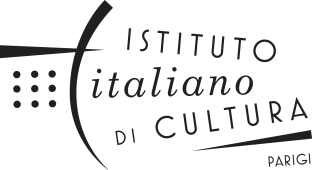Jérôme Combier, Alberto Posadas, Salvatore Sciarrino
decemberdec 15
Sunday december 15
15h
Jérôme Combier, Cordelia des nuées (2003) for flute.
Alberto Posadas, Ianus pour piccolo. Commissioned by the Festival d'Automne à Paris - World premiere.
Salvatore Sciarrino, Venere che le grazie la fioriscono (1989) for flute.
Jérôme Combier, Strands (...) parce qu’elles ont l’ombre des abîmes (...) for ensemble and electronics. Commissioned by the Festival d'Automne à Paris - World premiere.
Matteo Cesari, flute and piccolo.
Max Bruckert, computer music producer.
Natan Katz, head of lighting design.
Ensemble Multilatérale.
Rémi Durupt, direction.
Coproduction Grame - centre national de création musicale
Residencies Théâtre Silvia Monfort
The Ensemble Multilatérale is subsidised by the Drac Île-de-France – ministère de la Culture.
The C’est vous l’avenir Foundation is the major sponsor for the Ensemble Multilatérale and is also supported by Spedidam, Sacem and the CNM for its activities.
It is a member of the Fédération des Ensembles Vocaux et Instrumentaux Spécialisés (FEVIS) and Profedim.
The Théâtre de la Ville-Paris and the Festival d’Automne à Paris are co-presenting this concert.
The music of Jérôme Combier opens up the way we listen to the details of the world and their subtle mutations. Poetic, and punctuated by mysterious outbursts, his music celebrates a plasticity which in turn shapes its instrumental and electronic elements. Strands, his latest work, sets up relationships between the animal and plant worlds, weaving spider's web-like threads between.
What exactly is a thread? Strands declines, in a twofold way, the tangible, concrete dimension of the thread itself. Following in the footsteps of the gypsy violin, in which a hair from the bow makes contact with the string, the extension of most of the instruments occurs due to barely visible strings. The same applies to the use of electronics, their exposed cables transmitting acoustic data from one direction to the other in web-like fashion. These transformations take place in real time, modifying the scale of sound at the level of microscopic observation, but also the echoes of the world, the rustling of the wind in the leaves or faint quivering of insects. Threads such as these give rise to a form which undergoes incessant transformation. Jérôme Combier evokes the concept of the rhizome as seen through the eyes of Gilles Deleuze and Félix Guattari. It is a rhizome which evolves horizontally, in the absence of any centre, hierarchy, or a priori. Much attention, however, is paid to the line it takes, to this link which connects us, the multiple and the heterogeneous. Put differently, as Ovid wrote in this excerpt from his Metamorphoses: “I intend to speak of forms transformed into new entities." Entrusted to the virtuoso fingers and phrasing of Matteo Cesari, this program consisting of three works for solo flute includes a new work by the Spanish composer Alberto Posadas.
Interview with Jérôme Combier, George Benjamin & Heiner Goebbels
In the same place


